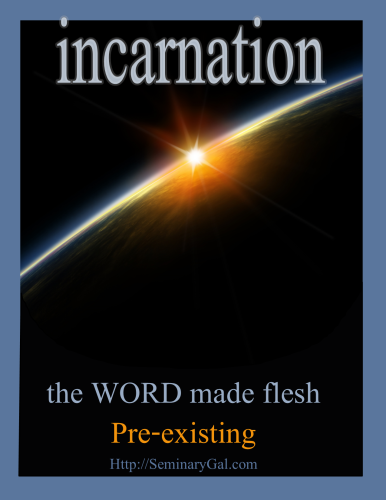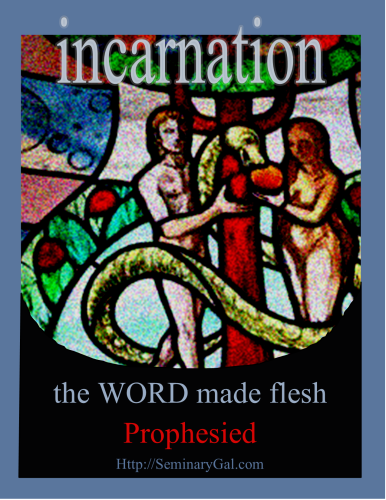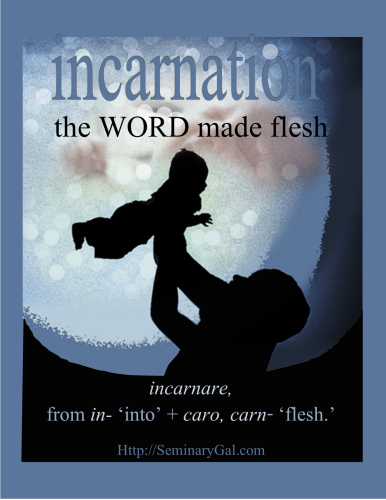Sorry for the repost on this. My web site has been experiencing technical difficulties and I needed to restore to an earlier version that was missing this post.
I’m away from the pulpit again this week as I continue to prepare the good folks in the congregation at Plymouth Church for my departure at the conclusion of the Book of Acts (in December). We have a guest preacher again this week as we pursue an orderly transition and learn Bible truths from other preachers and pastors. I thoroughly enjoyed the message offered this week by our guest.
However, to keep up with the study of Acts of the Holy Spirit and the Apostles online, I offer my own devotional on the topic (and again, there will be no accompanying audio this week).
It’s important that we don’t carry around notions based upon mistaken identity.
The Apostle Paul had his share of misunderstandings, some self-inflicted and others aimed directly at him. God, however, wants us to be seeing life with eyes wide open, being clear minded, knowing our role in our culture, and grounding our identity in Christ. When we see the question is not so much “Who am I?” but “Whose am I?” we will be free from mistaken identity and confident in sharing our Christian identity with others in the form of testimony. Lately people have been using a hashtag #IamAChristian to affirm their identity in Christ. That’s what Paul will be talking about today as he teaches us 5 aspects of mistaken identity in Acts 21-22. Mistaken identity that needed correcting if one will be a Christian.
Last week, the mob was about to kill Paul when he was hauled off to the barracks for questioning. The commander got it wrong, though.
Mistaken Identity #1. He’s not an Egyptian causing trouble. He’s a Jew through and through.
Acts 21: 37 As the soldiers were about to take Paul into the barracks, he asked the commander, “May I say something to you?” “Do you speak Greek?” he replied. 38 “Aren’t you the Egyptian who started a revolt and led four thousand terrorists out into the desert some time ago?” 39 Paul answered, “I am a Jew, from Tarsus in Cilicia, a citizen of no ordinary city. Please let me speak to the people.”
The commander was surprised to see that Paul speaks Greek and further surprised to learn that Paul was not an Egyptian at all but from Tarsus and a Jew, like the rest of the “Men of Israel” mob which was trying to kill Paul. Mistaking him for an Egyptian meant that the commander’s reason for taking Paul to the barracks was thrown into question. Paul was from Tarsus—moreover, he was a citizen of Tarsus which was no ordinary city. The commander didn’t really seem to be all that impressed with Tarsus, but it did alert him to the fact that he wasn’t dealing with the person he thought he was dealing with (an Egyptian insurrectionist and terrorist).
Therefore he lets Paul speak. Perhaps the commander thought that Paul was going to correct the record with the crowd. Maybe the “Men of Israel” thought Paul was an Egyptian too. Letting Paul speak, however, is always a dangerous thing. Not only is he a good speaker, but his logic is impeccable and his rhetorical skill is superb. He’ll give the Gospel full strength at every opportunity. So, Paul retells his conversion story that we first heard about in Acts 9. This time, Paul fills us in on a few more details. The crowd, those “Men of Israel,” may very well be surprised now to learn that Paul isn’t who they thought he was. Paul has some pretty amazing Jewish credentials.
Acts 22:1 “Brothers and fathers, listen now to my defense.” 2 When they heard him speak to them in Aramaic, they became very quiet. Then Paul said: 3 “I am a Jew, born in Tarsus of Cilicia, but brought up in this city. Under Gamaliel I was thoroughly trained in the law of our fathers and was just as zealous for God as any of you are today. 4 I persecuted the followers of this Way to their death, arresting both men and women and throwing them into prison, 5 as also the high priest and all the Council can testify. I even obtained letters from them to their brothers in Damascus, and went there to bring these people as prisoners to Jerusalem to be punished.
Mistaken identity #2. Paul is not some ignorant, mind-numbed cult follower of Jesus, but a highly educated and credentialed Jew of Jews.
He is a Jew and therefore calls them “brothers and fathers.” He spoke in Aramaic because that was their spoken language of choice. He was trained under Gamaliel, the foremost rabbi of their time. He was not just a student who skipped class perpetually, some lazy slacker who squeaked by with a D-minus. Nope. He was thoroughly trained and zealous as any of them. Actually Paul is being modest. He was zealous beyond the point that even they are. In fact, he was downright notorious for his persecution of Christians. He was feared by Christians throughout the region and he was known to the high priest and to the Council, the Sanhedrin, as he got letters from these leaders to hunt down, arrest, and kill Christians. Paul was a persecutor of Christians, and like ISIS today, Paul had that as his primary life’s ambition.
But Paul previously had a mistaken identity. #3 Paul thought that Christians were the infidels and Jesus was falsely worshiped. But then, something changed: Paul saw the Light.
 6 “About noon as I came near Damascus, suddenly a bright light from heaven flashed around me. 7 I fell to the ground and heard a voice say to me, ‘Saul! Saul! Why do you persecute me?’ 8 “‘Who are you, Lord?’ I asked. “‘I am Jesus of Nazareth, whom you are persecuting,’ he replied. 9 My companions saw the light, but they did not understand the voice of him who was speaking to me. 10 “‘What shall I do, Lord?’ I asked. “‘Get up,’ the Lord said, ‘and go into Damascus. There you will be told all that you have been assigned to do.’ 11 My companions led me by the hand into Damascus, because the brilliance of the light had blinded me. 12 “A man named Ananias came to see me. He was a devout observer of the law and highly respected by all the Jews living there. 13 He stood beside me and said, ‘Brother Saul, receive your sight!’ And at that very moment I was able to see him. 14 “Then he said: ‘The God of our fathers has chosen you to know his will and to see the Righteous One and to hear words from his mouth. 15 You will be his witness to all men of what you have seen and heard. 16 And now what are you waiting for? Get up, be baptized and wash your sins away, calling on his name.’
6 “About noon as I came near Damascus, suddenly a bright light from heaven flashed around me. 7 I fell to the ground and heard a voice say to me, ‘Saul! Saul! Why do you persecute me?’ 8 “‘Who are you, Lord?’ I asked. “‘I am Jesus of Nazareth, whom you are persecuting,’ he replied. 9 My companions saw the light, but they did not understand the voice of him who was speaking to me. 10 “‘What shall I do, Lord?’ I asked. “‘Get up,’ the Lord said, ‘and go into Damascus. There you will be told all that you have been assigned to do.’ 11 My companions led me by the hand into Damascus, because the brilliance of the light had blinded me. 12 “A man named Ananias came to see me. He was a devout observer of the law and highly respected by all the Jews living there. 13 He stood beside me and said, ‘Brother Saul, receive your sight!’ And at that very moment I was able to see him. 14 “Then he said: ‘The God of our fathers has chosen you to know his will and to see the Righteous One and to hear words from his mouth. 15 You will be his witness to all men of what you have seen and heard. 16 And now what are you waiting for? Get up, be baptized and wash your sins away, calling on his name.’
The companions saw the light too, but they were not blinded by it. No scales on their eyes. They didn’t understand the voice that spoke to Paul. Interesting, is it not, that people can see the very same thing…and yet, not understand what has happened? God must open our eyes to see the mistaken identity and we must be willing to take it to heart. Paul did.
Mistaken identity #4. Paul thought he was only persecuting Christians. He had no idea that he was actually persecuting the Christ, the long-awaited Jewish Messiah. The Jews had been waiting for this Messiah since the days of Abraham and now Paul is aware that he has been persecuting the very One he has been waiting for: it’s a case of mistaken identity on steroids.
We aren’t told about the companions. Did they have their eyes opened to the truth, too? Or did the Gospel cut both ways? Did they go away with nothing but a strange story and hard hearts?
From Damascus to Jerusalem, must have been a thinking journey for Paul. Working his way through all those Scriptures he knew by heart. All that training that he’d received. And now the Light of Christ illuminating it all and the Holy Spirit showing Paul the Truth and how much Paul himself was going to suffer for the cause of Christ.
What goes around comes around;
the hunter becomes the hunted;
and the persecutor becomes the persecuted.
17 “When I returned to Jerusalem and was praying at the temple, I fell into a trance 18 and saw the Lord speaking. ‘Quick!’ he said to me. ‘Leave Jerusalem immediately, because they will not accept your testimony about me.’
Mistaken identity #5. The crowd then thought that Paul was a false teacher. But Paul is an extraordinary evangelist to Jews and Gentiles alike. He’s teaching Truth, but now just as before, many will not accept it.
Now, Paul has come full circle, twice. He started in Jerusalem as a persecutor of Stephen (and Christ). On round one, Paul returned to Jerusalem as a Christian with work to do and needing to flee in order to accomplish it. But now, Paul is back in Jerusalem and they still do not accept Paul’s testimony about God’s plan of salvation, but the time has arrived that was bound to happen. The crowd has a mistaken identity just as Paul had at the time of Stephen’s death.
The difference is that now, Paul knows exactly who he is and moreover, he knows Whose he is. He belongs to Christ Jesus.
What about you? Who do you say Jesus is? Who do you think you are? Is your identity in all the credentials and the pedigree…or is your identity as one who has been redeemed? Are you living in a case of mistaken identity… or have you seen the Light? Are you living with your eyes open wide? Are you clear minded, knowing your role in our culture, grounding your identity in Christ, and consequently being confident in sharing your Christian identity with others in the form of testimony? If not, today is a good day to give up that old mistaken identity and to ask God’s forgiveness through Jesus Christ and to clothe yourself with His righteousness so that you, like Paul, might know Whose you are.
For the one who has been redeemed, there’s no more mistaken identity.
 So, was the Incarnation God’s “Plan B” after Adam and Eve went AWOL and became rogue humans?
So, was the Incarnation God’s “Plan B” after Adam and Eve went AWOL and became rogue humans? Adam and Eve used to be in the Garden of Eden, naked as the day they were created. But then they disobeyed God, they rebelled against Him and they reaped the consequences that God told them ahead of time were going to happen.
Adam and Eve used to be in the Garden of Eden, naked as the day they were created. But then they disobeyed God, they rebelled against Him and they reaped the consequences that God told them ahead of time were going to happen. Let us start at the very beginning:
Let us start at the very beginning:
 It has come to my attention that some of you are still excited about last year’s devotionals entitled Carol Me, Christmas! Yes, it was a fun series! If you’d prefer those devotionals, you’ll find them in the sidebar archives beginning November 2014. The announcement was
It has come to my attention that some of you are still excited about last year’s devotionals entitled Carol Me, Christmas! Yes, it was a fun series! If you’d prefer those devotionals, you’ll find them in the sidebar archives beginning November 2014. The announcement was 
 6 “About noon as I came near Damascus, suddenly a bright light from heaven flashed around me. 7 I fell to the ground and heard a voice say to me, ‘Saul! Saul! Why do you persecute me?’ 8 “‘Who are you, Lord?’ I asked. “‘I am Jesus of Nazareth, whom you are persecuting,’ he replied. 9 My companions saw the light, but they did not understand the voice of him who was speaking to me. 10 “‘What shall I do, Lord?’ I asked. “‘Get up,’ the Lord said, ‘and go into Damascus. There you will be told all that you have been assigned to do.’ 11 My companions led me by the hand into Damascus, because the brilliance of the light had blinded me. 12 “A man named Ananias came to see me. He was a devout observer of the law and highly respected by all the Jews living there. 13 He stood beside me and said, ‘Brother Saul, receive your sight!’ And at that very moment I was able to see him. 14 “Then he said: ‘The God of our fathers has chosen you to know his will and to see the Righteous One and to hear words from his mouth. 15 You will be his witness to all men of what you have seen and heard. 16 And now what are you waiting for? Get up, be baptized and wash your sins away, calling on his name.’
6 “About noon as I came near Damascus, suddenly a bright light from heaven flashed around me. 7 I fell to the ground and heard a voice say to me, ‘Saul! Saul! Why do you persecute me?’ 8 “‘Who are you, Lord?’ I asked. “‘I am Jesus of Nazareth, whom you are persecuting,’ he replied. 9 My companions saw the light, but they did not understand the voice of him who was speaking to me. 10 “‘What shall I do, Lord?’ I asked. “‘Get up,’ the Lord said, ‘and go into Damascus. There you will be told all that you have been assigned to do.’ 11 My companions led me by the hand into Damascus, because the brilliance of the light had blinded me. 12 “A man named Ananias came to see me. He was a devout observer of the law and highly respected by all the Jews living there. 13 He stood beside me and said, ‘Brother Saul, receive your sight!’ And at that very moment I was able to see him. 14 “Then he said: ‘The God of our fathers has chosen you to know his will and to see the Righteous One and to hear words from his mouth. 15 You will be his witness to all men of what you have seen and heard. 16 And now what are you waiting for? Get up, be baptized and wash your sins away, calling on his name.’ Paul had learned something very important by virtue of his life experiences.
Paul had learned something very important by virtue of his life experiences.  Let me offer an illustration to show how it is that Apollos could teach about Jesus accurately but still have an inadequate understanding.
Let me offer an illustration to show how it is that Apollos could teach about Jesus accurately but still have an inadequate understanding.
 I think it’s time for America to stop buying the lie about abortion.
I think it’s time for America to stop buying the lie about abortion. 